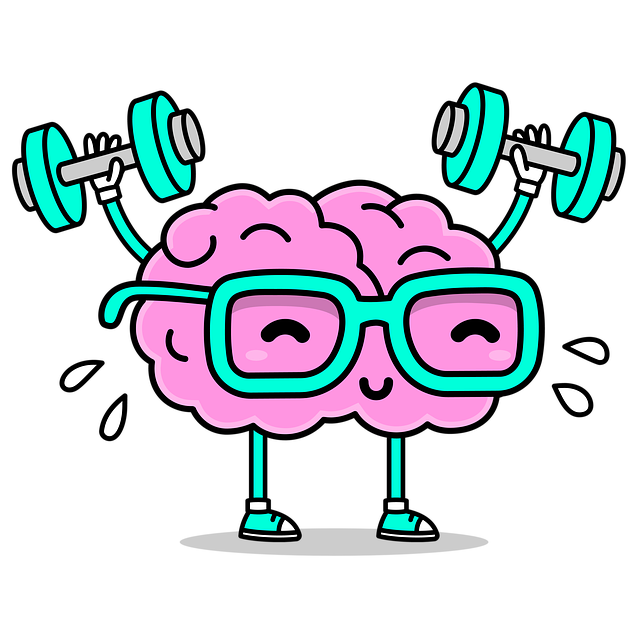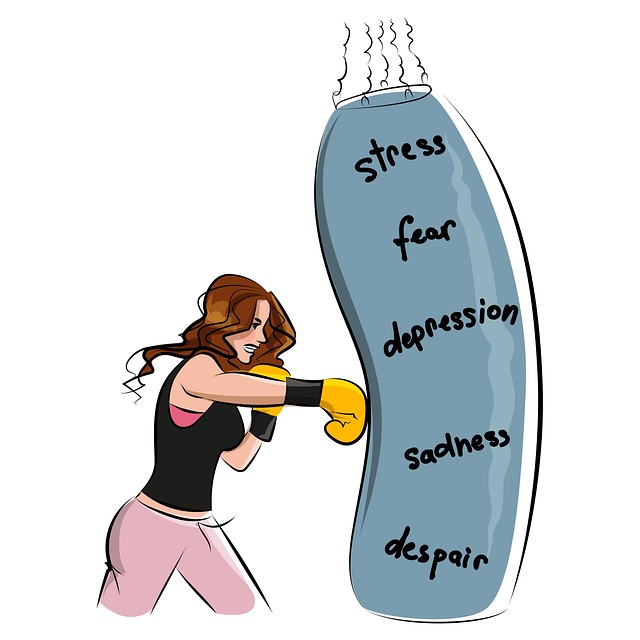Aurora Play Therapy offers a specialized approach to managing stress in children and teens, leveraging creative play to help them explore emotions, develop coping strategies, and build inner strength. By integrating cultural sensitivity and therapeutic games, this practice empowers young individuals to effectively manage stress and anxiety through imaginative scenarios that foster mental wellness and resilience. Implementing Aurora Play Therapy in educational settings can enhance overall mental well-being and equip students with valuable life skills, making it a vital strategy for creating healthy learning environments.
Stress management techniques are essential for the holistic development of children and teens. This article explores effective strategies to understand and address stress in young individuals, focusing on the therapeutic benefits of Aurora Play Therapy. We delve into practical approaches that educators and parents can implement at home and school, fostering resilience and emotional well-being. Discover how play-based interventions, inspired by Aurora Play Therapy, offer a unique and engaging method to teach valuable stress management skills, promoting a calmer and more balanced lifestyle for children and teens.
- Understanding Stress in Children and Teens
- The Role of Aurora Play Therapy in Teaching Stress Management Techniques
- Practical Strategies for Implementing Effective Stress Relief at Home and School
Understanding Stress in Children and Teens

Stress is a universal experience, but its impact on children and teens can be particularly profound. Understanding this population’s unique stress responses is essential for effective support. Many young individuals struggle with external pressures from academic demands, social interactions, and family dynamics. Additionally, internal factors like self-esteem, anxiety, and emotional regulation play a significant role in how they perceive and cope with stress. Aurora Play Therapy offers a specialized approach to address these challenges, utilizing creative and playful methods that resonate with children and teens.
Through engaging activities and therapeutic games, Aurora Play Therapy helps young clients explore and express their feelings, develop coping strategies, and build inner strength. Cultural sensitivity is at the core of this practice, recognizing that stress experiences vary across cultures and backgrounds. By incorporating these diverse perspectives into therapy sessions, Aurora Play Therapy ensures a supportive and inclusive environment where every child can find solace and develop effective stress management skills.
The Role of Aurora Play Therapy in Teaching Stress Management Techniques

Aurora Play Therapy offers a unique and effective approach to teaching stress management techniques, particularly for children and young adults. This therapeutic method leverages play as a powerful tool to help individuals process emotions, build resilience, and develop coping strategies. Through imaginative play scenarios, clients can explore and express their feelings in a safe, controlled environment, fostering mental wellness from an early age. The process encourages social skills training by promoting empathy, communication, and problem-solving abilities, which are essential components of stress management.
By integrating Aurora Play Therapy into educational settings or trauma support services, professionals can address the root causes of stress and anxiety in a non-threatening manner. This method is especially beneficial for those who may struggle with traditional talk therapy, allowing them to engage in therapeutic activities that enhance their overall mental wellness and equip them with valuable life skills.
Practical Strategies for Implementing Effective Stress Relief at Home and School

Implementing effective stress relief strategies at home and school is essential for fostering a healthy environment that promotes mental well-being. Aurora Play Therapy offers valuable insights into this domain, emphasizing the importance of play in managing stress, especially for children. Incorporating practical techniques such as guided meditation, deep breathing exercises, and engaging in creative activities can significantly reduce anxiety levels. These methods are not only beneficial for students but also serve as powerful tools to enhance self-care practices among educators.
Designing Mental Health Education Programs within academic institutions plays a crucial role in equipping both students and teachers with essential coping skills. By integrating these programs, schools can create a supportive atmosphere where open discussions about stress management are encouraged. Additionally, encouraging regular Self-Care Practices, such as adequate sleep, healthy eating, and physical exercise, reinforces the overall well-being of the school community. Boosting confidence through positive affirmations and skill development further strengthens individuals’ resilience against stressful situations.
Aurora Play Therapy offers a unique and effective approach to teaching children and teens stress management techniques. By integrating play and creativity, this therapy provides a safe space for individuals to explore and express their emotions, ultimately fostering resilience and coping skills. The practical strategies outlined in this article can complement Aurora Play Therapy practices, empowering both educators and parents to create supportive environments that promote mental well-being. Through collaborative efforts, we can ensure that children and teens develop the tools necessary to navigate life’s challenges with confidence and grace.














